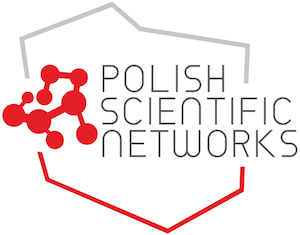The ‘Energy’ session will cover various energy storage and conversion aspects – from materials to the devices and from concepts to technologies. Batteries, electrochemical capacitors, solar (photovoltaic) cells and many others fall well into the scope. Since the symposium aims at highly intra-disciplinary contributions, it is expected that the Attendees will benefit from cross-linking outcome for their own research.
This session will as some fundamental questions regarding the role of social media at the intersection of contemporary science and technology. How is social media shaping the landscape of innovation environment? What challenges does it create for scientists working on creation and commercialization of new knowledge? How social media also impacts modern academia in educational endeavors and in shaping the scientists of the future?
The IT (Information Technology) session will focus on grand challenges, applications and problems which have to use High Performance Computing and Big Data infrastructures to solve its problems. The presentations are covering but not limited to following topics: Best practices of HPC Applications and Big Data, Parallel computing, Machine Learning, Algorithms of accelerators, optimisation of parallel algorithms, Reliability and efficiency, New areas of high performance computing
The Health Care session focuses on the new technologies and approaches being applied to health and medicine. We’ll try to examine the new frontier of precision medicine, including disease treatment and prevention, research and development to accelerate biomedical research, and new informatics approaches that are enabling better understanding of the bases of drug response and disease.
The Modern Materials session will focus on hidden heroes – the chemical compounds used today or the one we will use in the future. We take new materials as granted, but somebody synthesized them for the first time, optimized their physical properties and used in… our cell phone, or a jet engine.
Very broad spectrum of materials will be discussed, including plasmonic materials and metamaterials, compounds for spintronic applications, superconductors, frustrated magnets, thermoelectrics, topological insulators and Dirac semimetals.
This session will be devoted to big scientific facilities (e.g., synchrotrons, colliders, lasers). We will mainly focus on research problems for which different aspects can be addressed with the use of such massive machines. Additionally, we will discuss the scientific achievements which can improve the capabilities of internal components of such machines. Finally, we intend to show scientists about the advantages of improving and developing these facilities.
How to prepare a poster?
Please, prepare posters in A0 (vertical orientation) size, in English, and in a way understandable for non-specialists in a given field of science, because the PSN2019 conference has interdisciplinary character.
When to mount your poster?
Authors qualified for the poster session will receive an e-mail with all necessary details (number of the poster and its location). This information will be also available at the conference registration desk. Please place the posters in the designated location before the start of the poster session of your session. Authors are responsible for mounting their posters, but the conference staff will provide the adhesive putty and tape. After the conference, the posters should be removed within an hour after the closing ceremony. Posters left at the conference site will be discarded.
When to present your poster?
The posters will be evaluated by the Session Jury composed of selected members of the Program Committee and keynote/invited speakers during the poster session on Friday (Energy, IT, Social Media)/Saturday (Modern Materials, Health care, Big Scientific Facilities) from 1:00 to 2:00 p.m. Please, find some time to talk to the jury during this session and answer their questions. The Poster prize jury will be looking for a high quality original research presented in a clear and appealing manner.
Prize announcement
The best three posters selected from each poster session will be announced at the closing ceremony (in total six posters will be awarded).
How to prepare an oral presentation?
A flash talk is a very short presentation in which you present a reserch idea or concept (1 or 2 slides for 3 minutes + 2minutes for question&answer). Keep it as simple as possible. It is recommended to focus on only one scientific problem and to make your message clear with limited number of figures. As the PSN2019 Conference is interdisciplinary in character, the presentations should be comprehensible for non-specialists in the given field.
Authors of flash talk may also present their own research during the poster session.
Conference presentations
The presentation should be delivered as Power Point, or pdf file to the person responsible for the session support services on a Flash Disc or CD. Personal computer may also be used – it will be connected to the projector via HDMI or VGA connector. The session will be registered and broadcasted live in the Internet.
Statement declaring agreement to record the presentation will be sent via email not later than two weeks before the conference. If the author does not agree, the presentation will not be recorded.
How to prepare an oral presentation?
The length of oral presentations is 12 minutes, followed by 3 minutes of discussion. The lecture may be accompanied with slides presentation, audio and video recordings. As the PSN2019 Conference is interdisciplinary in character, the presentations should be comprehensible for non-specialists in the given field.
Conference presentations
The presentation should be delivered as Power Point, or pdf file to the person responsible for the session support services on a Flash Disc or CD. Personal computer may also be used – it will be connected to the projector via HDMI or VGA connector. The session will be registered and broadcasted live in the Internet.
Statement declaring agreement to record the presentation will be sent via email not later than two weeks before the conference. If the author does not agree, the presentation will not be recorded.
